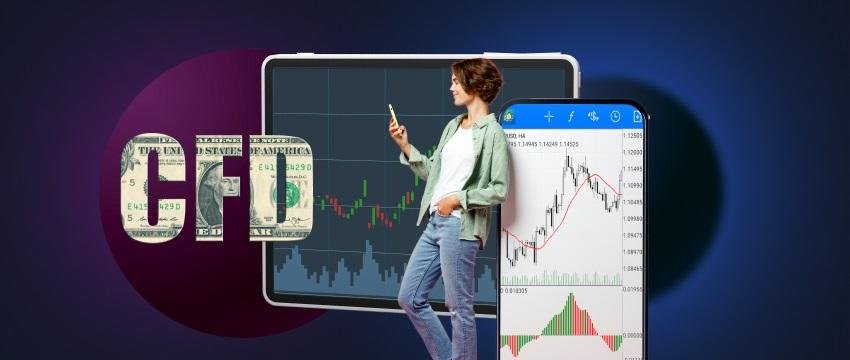Contracts for Difference (CFDs) have become an essential instrument for today’s traders, offering a way to speculate on the fluctuations of various global financial assets, including stocks, indices, currencies, and commodities. The interplay between CFDs and global economic shifts is intricate, and understanding this relationship is crucial for traders aiming for success. This article explores how worldwide economic developments influence trading decisions and provides insights into the complex world of market dynamics.
The overall health of the global economy significantly affects CFD trading. When an economy is thriving, the value of assets tied to that economy often rises, reflecting positive sentiment and confidence. Conversely, economic downturns or political instability can lead to a decline in asset values. For example, favorable economic data from a country can boost its currency or stock market, affecting related CFDs positively. On the other hand, poor performance or instability can drag asset values down.
Key economic indicators are fundamental in shaping market sentiment, which in turn influences CFD values. Indicators like GDP growth, employment figures, inflation rates, and central bank interest rate decisions provide snapshots of an economy’s health and direction. For instance, an unexpected hike in interest rates by a major central bank can cause that country’s currency to surge, affecting currency pair CFDs linked to it.
Global events that trigger market volatility are crucial for CFD traders to watch. Events such as geopolitical tensions, elections, trade disputes, and pandemics can lead to sudden, significant market movements. These events present both risks and opportunities. Savvy CFD traders keep a close eye on global news and adjust their strategies to manage risks and exploit the opportunities brought by such volatility.
Market sentiment, or the collective mood of investors towards a market or asset, plays a significant role in CFD trading. Positive sentiment can drive prices up, while negative sentiment can push them down. News reports, political developments, and economic data can all influence sentiment. Interpreting market sentiment correctly is vital for CFD traders, as it can indicate potential market movements.
Understanding the correlations between different markets and assets is another key factor in trading. There are often strong relationships between different asset classes, such as commodities and stock markets or specific currencies and national economies. Recognizing these correlations helps traders predict how changes in one market might impact another, guiding their trading strategies.
Technological advancements have revolutionized trading, providing modern traders with sophisticated tools for analysis, real-time data access, and automated trading systems. These tools enable traders to respond quickly to global economic developments and market conditions, making informed and timely trading decisions.
Effective risk management is essential in CFD trading, particularly given the influence of global economic factors. This includes diversifying portfolios, employing prudent leverage, and setting stop-loss orders to protect capital. Proper risk management practices help traders mitigate the impact of market volatility and navigate the uncertainties of the global economy.
Continuous learning and adaptation are critical for success in trading. The global economic landscape is continually evolving, and strategies that work today may not be effective tomorrow. Successful traders stay abreast of global economic trends, regularly review and adjust their trading plans, and remain open to new strategies and methodologies.
Trading CFDs presents significant opportunities but requires a deep understanding of the relationship between global economic trends and market dynamics. By staying informed about economic indicators, monitoring global events, understanding market sentiment, leveraging technological tools, and practicing effective risk management, traders can navigate the complexities of trading with greater confidence. Embracing continuous learning and adaptation ensures that traders remain resilient and prepared to face the ever-changing challenges and opportunities in the financial markets.



More Stories
PVD-Coated vs. Traditional Furniture: Who win?
PCD Pharma Franchise Company in Baddi: Oasis Bio Bloom
Brass Hose Fittings: Perfect for Any Industry